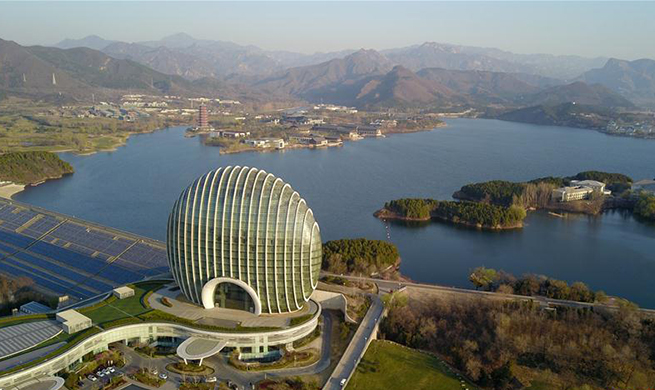WUHAN, April 24 (Xinhua) -- Chinese scientists have unveiled the mystery of how hadal snailfish, a typical deep-sea species from the Mariana Trench, could survive the harsh conditions of 7,000 meters under the sea.
This is the first time researchers have revealed the genetic basis of the hadal snailfish' adaption to harsh conditions under the sea and the research was published in the journal Nature Ecology & Evolution.
The hadal zone, which refers to the parts of the ocean deeper than 6,000 meters, features extreme conditions such as ultra-high pressure, huge temperature difference, no light and unique chemical environment. It is largely unknown how living organisms, especially vertebrates survive and thrive in the coldness, darkness and high pressures of the hadal zone.
Researchers from Northwestern Polytechnical University, the Institute of Deep-sea Science and Engineering and the Institute of Hydrobiology under the Chinese Academy of Sciences as well as other research institutions conducted a genomic analysis of the snailfish and results showed that a gene for hardening bones is inactive, which means the skeleton made of cartilage is more pressure-tolerant. Meanwhile, some gene mutations help prevent proteins from folding incorrectly under extreme pressure.
As the snailfish lives in dark environment, its vision-related genes are primarily lost, which makes them transparent and lose response to visible light.
According to He Shunping from the Institute of Hydrobiology, the snailfish feeds on invertebrates. The researchers dissected a snailfish and found that there were nearly a hundred crustaceans in its stomach, suggesting that it can store food for a long time to cope with food scarcity in the deep sea.
The snailfish sample used in the research was obtained during China's deep-sea expedition to the Mariana Trench in the western Pacific Ocean in 2017.

















